Tivoli and CBS students join forces to troubleshoot a real dilemma
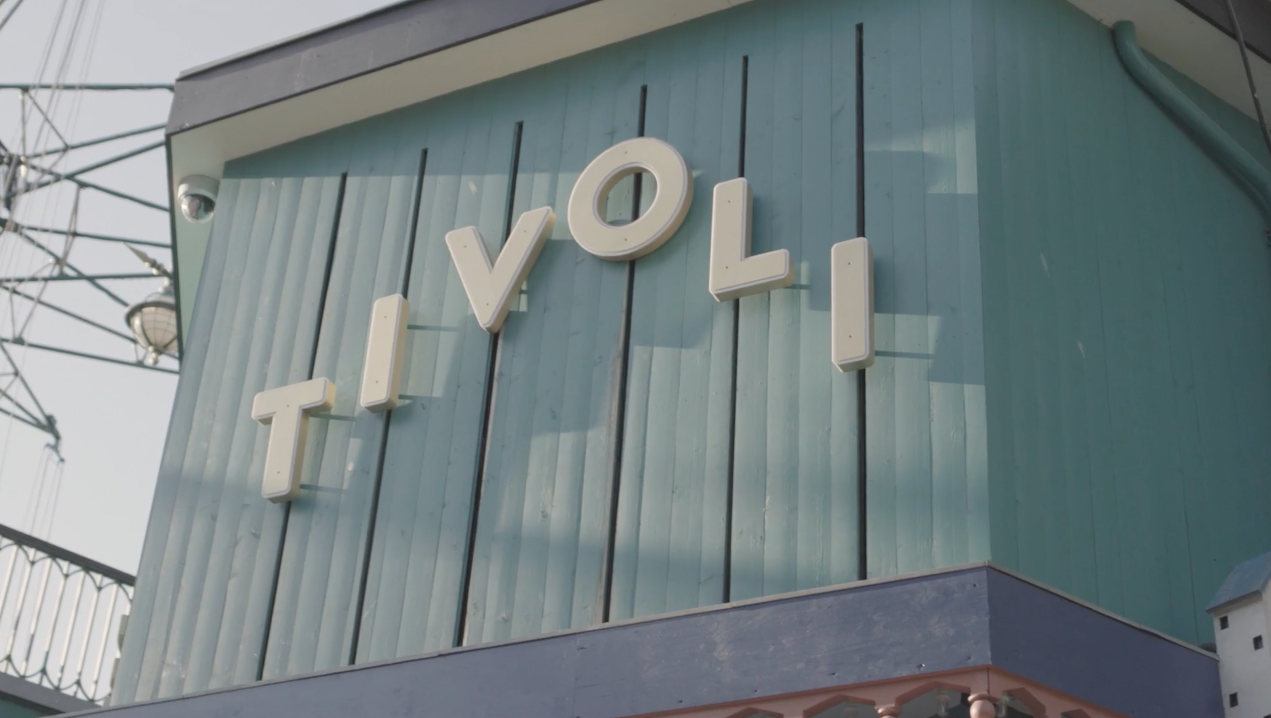
(Photo by Kasper Christiansen, CBS TL)
External lecturer Østergaard Jacobsen decided to invite himself for coffee in Tivoli, and bringing 110 of his EMF students along for a marketing brainstorm. Luckily Tivoli was along for the ride.
Every year, more than 4.4 million people visit 178-year-old Tivoli in the heart of Copenhagen, making it the biggest tourist attraction in Denmark. But in the early hours of 20 September, 110 CBS students entered through the famous gates, not to get their thrills from the regular roller-coaster and amusements, but from problem-shooting a real-life business case; Tivoli’s customer benefit program, Lux.
The students are from the first semester of the MSC in Economics and Marketing study program (EMF), and the program’s external lecturer, Per Østergaard Jacobsen, has always wanted to bring his students and lectures closer to businesses and the real problems in focus.
“I’ve often thought about the importance of bringing real-life cases into my lectures, and at CBS, we have a long tradition of inviting people from companies to come and give lectures. And this is all good and well, but after the students came back into the classes after the long lockdown, I wanted to do something more,” says Per Østergaard Jacobsen.
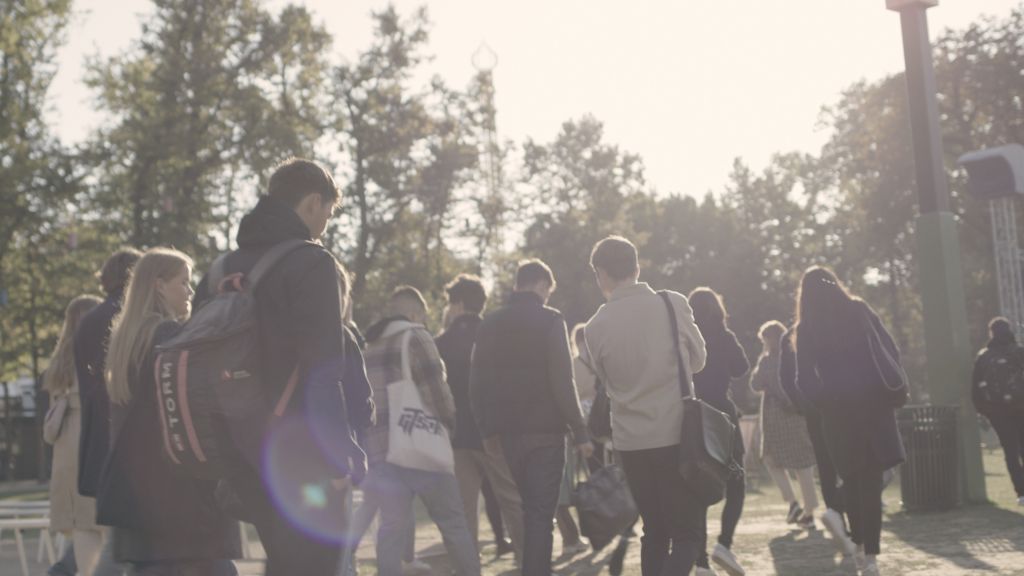
(Photo by Kasper Christiansen, CBS TL)
He was working on arranging student outings when he was contacted by former student Anne-Mette Nordahl Andersen, who now works as Digital Project Manager at Tivoli. She was developing a new benefit program for Tivoli’s repeat customers and remembered how, in Per Østergaard Jacobsen’s classes, she had worked on similar cases. She therefore wanted to pick his brain.
“Who better than Per to talk this interesting subject over with? So I wrote to him because I needed to use theory from his teaching in real life and thought it might be a good case for his students. I remember from Per’s classes how much fun it was working on real cases from real companies, rather than theoretic cases,” says Anne-Mette Nordahl Andersen.
And Per immediately saw a chance to arrange something really special for his students.
“I found it extremely interesting to bring my students into this, and then I got a crazy idea; why don’t we bring the students to Tivoli. It’s a bit cheeky to invite yourself and 110 students along for coffee, but I figured Tivoli might have the right set-up for it. And luckily it turned out to be possible,” says Per Østergaard Jacobsen.
No shortcuts to solutions
Tivoli and Per Østergaard Jacobsen found a case that matched the student’s curriculum perfectly, and Tivoli arranged catering and a tour of the grounds, and, of course, a presentation of the case: Tivoli Lux.
Anne-Mette Nordahl Andersen, who is project manager of the benefit program, also arranged the visit to Tivoli.
“I’d never imagined how complicated it would be to have 110 people visiting. It was a puzzle but also a fun challenge because I kept in mind how much I enjoyed a trip like this as a student, and I knew that it was going to be fun in the end. It takes time to plan, and you have to set aside resources for it. You have to give a decent presentation and thoroughly inform them about the product for them to be able to contribute,” says Anne-Mette Nordahl Andersen.
But she has no doubt that the students’ visit and brainstorm has been beneficial for Tivoli Lux.
“Young people have more flexible thought processes. While you are young, you can still be molded and haven’t decided what method is good. You think more freely, and I think it’s very beneficial for everyone to try this occasionally. It leads you down different paths and avoids the usual restrictions and old habits. Some of our ideas about the product were challenged and expanded, while others were confirmed and consolidated,” says Anne-Mette Nordahl Andersen and continues:
“When you invite 110 people into a room, you’ll have a diverse group, which allows us to think bigger than you usually would on a normal day at the office. The students also become aware of aspects that limit a project in the real world, like process and budget, which are normally left out in the theoretical world.”
Anne-Mette Nordahl Andersen warmly recommends having a student event like the one with Tivoli Lux but is adamant that companies must consider it part of a process and be ready to incorporate it into further work.
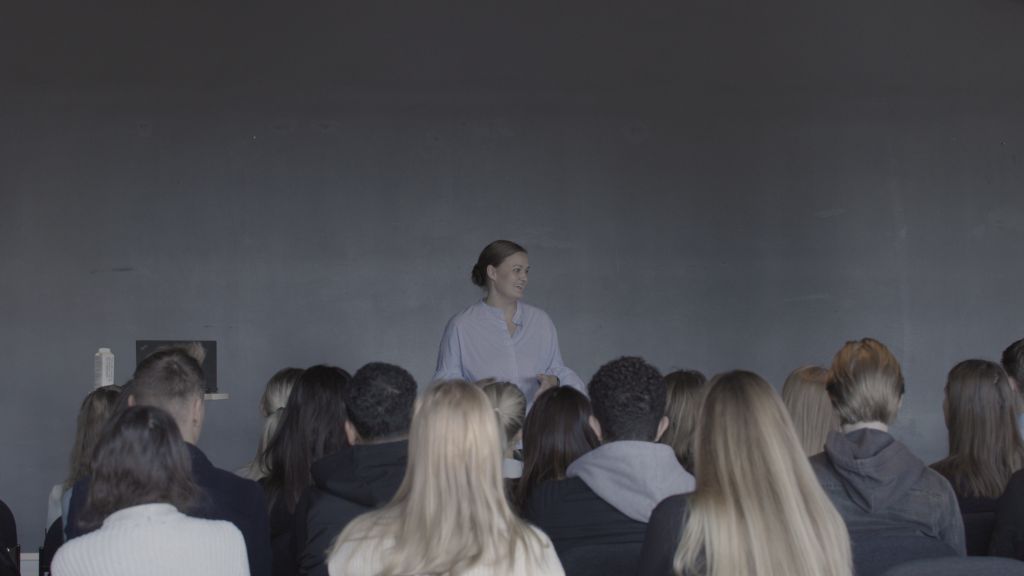
(Photo by Kasper Christiansen, CBS TL)
“You must have a clear idea of what you want help with. It has to be something you want to put time and energy into afterwards. Otherwise, it’s just a big project that leads nowhere and all the preparations are wasted. It must be part of a process,” says Anne-Mette Nordahl Andersen and continues:
“Don’t expect a fully formed idea to emerge, as it doesn’t work that way. You can’t only take, you have to give as well. An event like this involves tossing ideas around and then seeing what inputs have value, what can be used, and what needs to be worked on some more or adjusted. It was very fruitful because the students had a fresh, objective point of view and they saw some things that we hadn’t considered and that’s really important.”
Finding a purpose beyond theory
One of the students who participated is Alex Marcussen. He found the change of venue exciting and especially liked hearing about Tivoli’s approach and customer service considerations and how the business is run behind the scenes. Visiting a company, hearing its perspective and working on a real problem helped him find a deeper purpose in what he had been taught.
“In class, we have learned a lot about models and theory, but getting to see how that could make a difference for a business added meaning to what we had learned. During my time at CBS, the teaching has been classroom based. It’s very rare that we venture outside the campus. So actually, I thought going out to visit the company in the case and seeing how it operates was a really good variation,” says Alex Marcussen and continues:
“It was very motivating and I felt more willing to engage than usually.”
The experience also helped build his confidence as a student and his hopes for the future.
Throughout my studies, I have been a bit worried about my prospects after graduation. Is there a real need out there for people with my education? So, to experience that what you have learned and know is in demand has motivated me and convinced me that there is a place for me out there,” says Alex Marcussen.
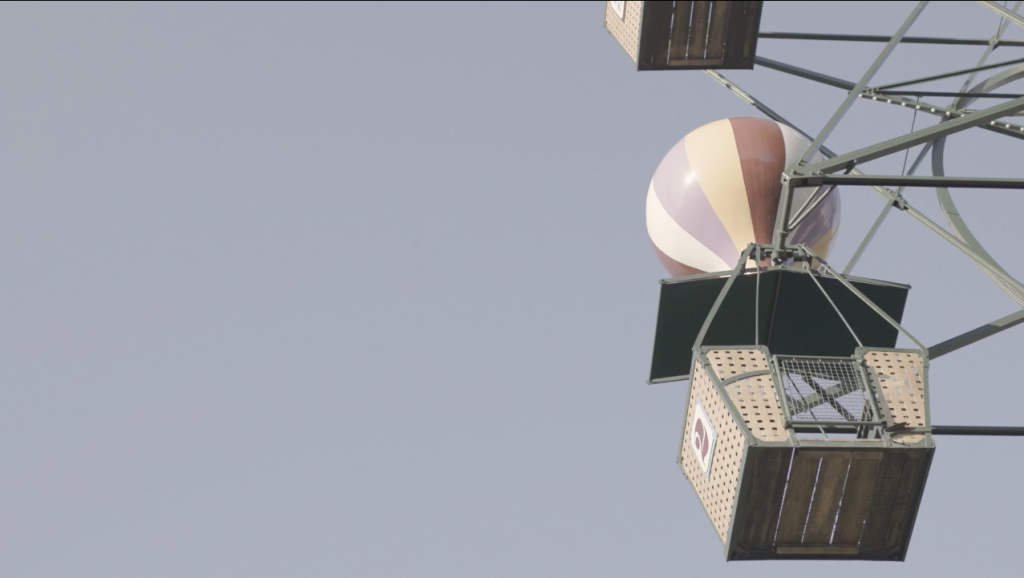
(Photo by Kasper Christiansen, CBS TL)
He hopes that others will get to experience real-life cases and visit companies, and that CBS study programs in general will cooperate more with businesses.
“Lectures from business leaders are one thing, but it’s something quite different to see them on their home ground and work with them on a real issue. It’s so useful and builds you up,” says Alex Marcussen.
Toolkit for the future
Per Østergaard agrees with Alex Marcussen and is already working on arranging student events with companies in the spring. And Tivoli is open to continue working with EMF on projects, e.g. analyzing the data from Tivoli Lux, based on the inputs the student presented in September.
“It’s not over yet. It’s really exciting and I’m hoping to land a huge global business soon and I also hope to work with a digital player, because the world of sales is everchanging and many areas are shifting to marketing,” says Per Østergaard Jacobsen.
He finds his students’ positive feedback very uplifting and it feeds his own enthusiasm for the project. For the semester’s written exams, many students are choosing Tivoli as their business case, and he can see how the event has expanded the student’s network.
“They now have a connection with Anne-Mette and can give her a call if they want to present an idea suitable for Tivol, says Per Østergaard Jacobsen.
He believes that student-business cooperation is an important part of keeping education relevant.
“At CBS, our strategy is that we want our students to do something that gives back to the world around us. Most of the time it seems to be hollow talk, but we cannot only be measured on research papers that no one really reads. And students cannot really learn from dated cases,” says Per Østergaard Jacobsen and continues:
“These students are the future. They have the knowledge and tools companies will need, so we must prepare them in the best way possible for the realities of corporate life.”





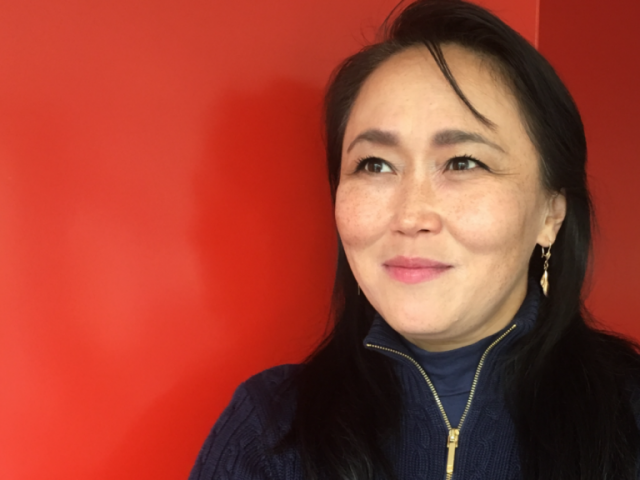
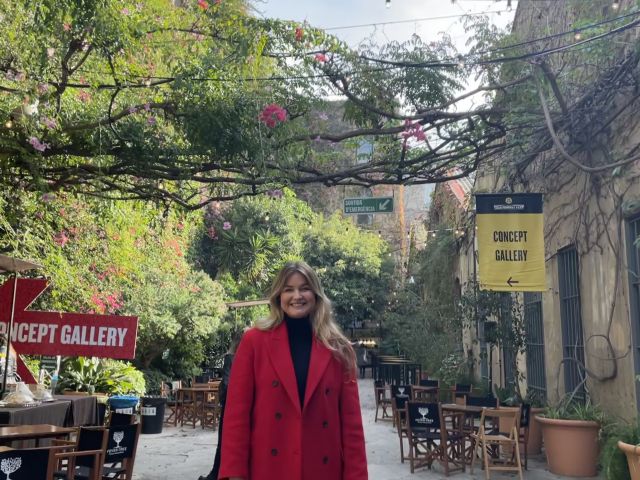






























































































































Comments